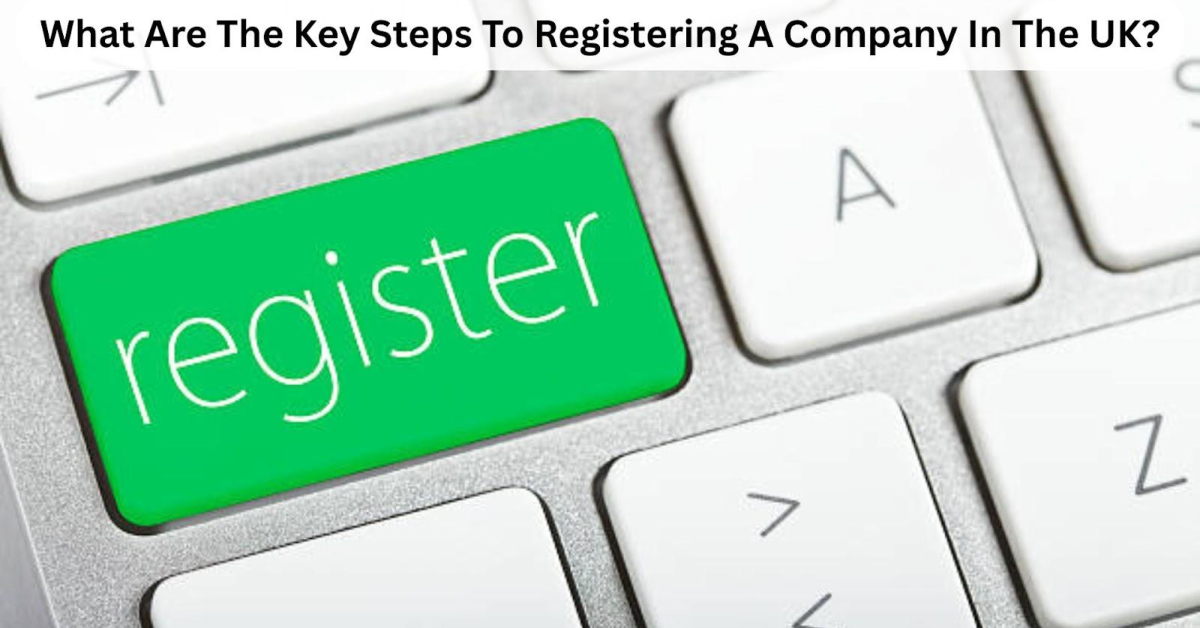Key Takeaways
- Secure your business future by registering with the right structure, giving you a competitive edge when attracting investors and partners.
- Simplify the process by breaking it into clear steps—choose a company type, pick a name, prepare documents, register, and then set up taxes.
- Build trust with customers and stakeholders by choosing a strong, professional name and taking time to register your business correctly.
- Get excited about the moment you receive your Certificate of Incorporation—it’s the official green light to run your business legally in the UK.
Starting a business in the UK can be an exciting journey.
However, before you can begin trading, you need to register your company. That means registering it with the proper authorities. Many people ask, What are the key steps to registering a company in the UK?
The process may sound complicated at first, but it becomes simple once you break it down into clear steps. You only need to follow the rules, prepare the proper documents, and choose the correct company type.
This guide will walk you through the significant steps you must take. By the end, you’ll know exactly what to do to set up your business legally in the UK.
Step 1: Decide on the Type of Company
To start your company registration in UK, the first step is to select the type of business you wish to register. A limited company is the most popular choice in the UK. This type of business structure differs from that of a sole proprietor. Other types of business structures include partnerships, sole traders, and limited liability partnerships.
Before choosing, consider what you want to achieve. For instance, if you wish to run a small store by yourself, registering as a sole trader can be all you need. If you want to grow your business by attracting investors, a limited company is the best option.
There are different rules for taxes, paperwork, and duties for each sort of business. Therefore, consider researching this matter and consulting an accountant before deciding. This option is essential because it will impact how your business runs in the future. You can move to the next step once you know what business you want.

Step 2: Choose a Company Name
Your business requires a unique name. There are regulations in the UK about what names you may and may not use. For instance, your name can’t be the same as that of another business that is already registered. Also, it cannot include any offensive words or terms that require permission to use.
Choose a name that is professional, simple, and easy to remember. Don’t use names that are overly long or difficult to understand. It’s also a beneficial idea to check if the website domain for your name is accessible, since you might want a website that matches your name later.
Companies House, the official UK organization for registering businesses, has a free online tool that allows you to check if the name you want is available. Take your time with this stage because altering the name after your business is registered can be a significant hassle.
A good business name might also help customers trust your brand more. So, be both innovative and valuable. After selecting a name and ensuring it is available, you can begin preparing for your business.
Step 3: Prepare the Required Documents
You need to prepare a few crucial papers before you can register. The Articles of Association and the Memorandum of Association are essential documents for registration.
The Memorandum of Association is a brief declaration signed by all founders of the firm. It shows that they are ready to start the business. The Articles of Association explain how the company will operate. They discuss matters like shareholders’ rights, decision-making, and directors’ roles.
You don’t have to start from scratch when you write these. You can use the basic versions provided by Companies House. Consider hiring a lawyer to help you make custom versions if your business is complicated.
You will also need to get personal information about all the shareholders and directors, like their names, addresses, and birth dates. The law says you need these facts.
Dedicating time to preparing these documents now carefully will save you time in the future. Your application could be delayed if you forget anything. You can start filling out the forms to send to Companies House once you have all the necessary information.

Step 4: Register with Companies House
Now, your business is official. You need to apply to Companies House to register. You can do this by mail, online, or through an agent.
The online approach is often the quickest and least expensive. Most applications get granted within a day. If you send in your application by mail, it could take up to ten days. The cost is significantly higher if you use paper forms.
When you apply, you’ll need to give your business name, the names of its directors and shareholders, and its address. You will also send in your Articles of Association and Memorandum.
You will receive a Certificate of Incorporation if your application is granted. This document shows that your business is officially registered. It includes the name of your business, its number, and the date it was formed.
Your business is now a legal entity because you have this certificate. You may open a business bank account, sign contracts, and start making deals. Registering with Companies House is a big step that proves your firm is serious and professional.
Step 5: Register for Taxes
After registering your business, you must also register with HM Revenue and Customs (HMRC) for taxes. This stage is really crucial. You could get fined later if you forget it.
Corporation tax is the tax that most businesses have to pay. You have three months from the start of your business to register. HMRC would want you to keep clear records of your income and expenses.
You should also register for VAT (Value Added Tax), depending on your business. If your yearly sales exceed the VAT limit, you have to do this. Some companies choose to register for VAT even if they don’t have to because it makes them look more professional.
You will also need to set up PAYE (Pay As You Earn) if you want to hire people. This approach allows you to deduct National Insurance and income tax from your employees’ paychecks.
It could seem like a lot, but HMRC has resources to help you. An accountant can also do these things for you. You may conduct your business legally after your taxes are in order.

Conclusion
If you follow the appropriate steps, registering a business in the UK is easy. The first thing you do is pick the kind of business. Thereafter, you choose a good name, fill in the necessary paperwork, and register with Companies House. Then, you register your taxes with HMRC.
Every step will be simple if you plan and take your time. Once everything is in place, your business will be legally compliant and prepared for growth and commerce. Starting a business can be challenging, but registering it correctly is the first crucial step toward achieving long-term success.
Frequently Asked Questions
What is the first step to registering a business in the UK?
The first step is deciding on the type of business you want to set up, such as a sole trader, partnership, limited company, or limited liability partnership. Each option comes with different rules for taxes, responsibilities, and paperwork, so it’s smart to research carefully.
How do I choose the right type of company structure?
Choosing depends on your goals. If you want simplicity and full control, becoming a sole trader may work best. If you plan to scale or bring on investors, a limited company usually offers more benefits.
Why is choosing the right company name so important?
Your company name is the first impression customers and partners will see. It needs to be unique, professional, and legally acceptable to avoid rejections or future rebranding problems. A well-chosen name also adds credibility to your brand.
What documents do I need to prepare before registering?
The two main documents are the Memorandum of Association and the Articles of Association. These outline your company’s purpose and how it will operate, including roles of directors and rights of shareholders.
How long does it take to register a business in the UK?
If done online, many applications are approved within 24 hours. Paper applications sent by mail can take up to 10 days or more. Using an agent is another option, but it often comes with added costs.
What is the Certificate of Incorporation, and why does it matter?
This is the official document from Companies House proving your business is legally registered. It includes your company name, number, and formation date, and it allows you to open a business bank account, sign contracts, and operate fully.
Do I need to register for taxes immediately?
Yes, you must register with HMRC within three months of starting your business. This covers corporation tax, and depending on your situation, you may also need to set up VAT registration and PAYE for employees.
Is VAT registration required for all businesses?
No, VAT registration is only required if your annual sales exceed the government threshold. However, some businesses voluntarily register for VAT because it makes them appear more professional and credible.
Can I change my business name after registration?
Yes, but it can be a hassle since it involves notifying Companies House, updating bank records, and rebranding efforts. That’s why it’s best to take time upfront to choose a name you’ll want long-term.
What’s a common myth about registering a business in the UK?
A common myth is that registering a company is complex and only suited for big businesses. In reality, the process is straightforward, affordable, and accessible even for small startups and solo entrepreneurs.




